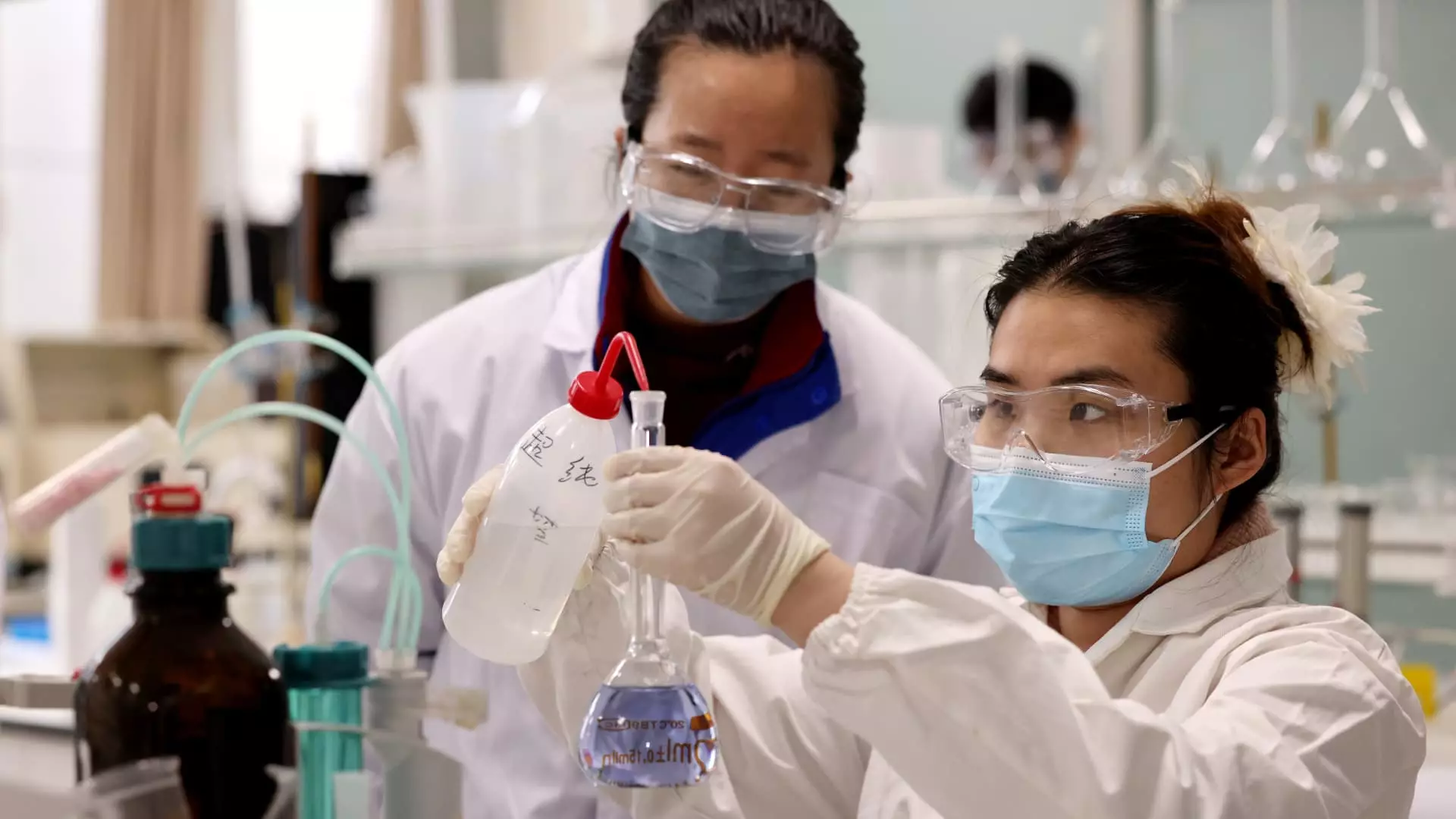As the stage is set for a fierce competition between the United States and China, the spotlight often lands on artificial intelligence (AI). However, new insights reveal an equally critical narrative unfolding in the realm of biotechnology. According to a recent report from the Harvard Belfer Center for Science and International Affairs, China is on the precipice of leading in this pivotal sector. Out of five essential tech areas—AI, biotechnology, semiconductors, space, and quantum technologies—it is biotech that presents a significant opportunity for China to surpass the U.S. This revelation should raise alarm bells in Washington and beyond, as biotechnology is not just a field of research—it’s a battleground for global influence, economic power, and even national security.
China’s progress in biotechnology contrasts starkly with the noticeable stagnation in some U.S. biotech hubs, where recent layoffs and empty labs have become all too common. The U.S. continues to hold the lead overall, but as the gap narrows in biotechnology, the equation changes rapidly. The historical context shows that biotech has been a strategic focus in China, solidified through government-backed initiatives since 2007. In contrast, the U.S. government’s approach has lacked a cohesive strategy in this critical field, leaving it vulnerable to rapid shifts in global competitiveness.
A Call to Urgency: The U.S. Must Innovate or Fall Behind
A bipartisan report from the U.S. National Security Commission on Emerging Biotechnology has sent a clear warning: a “ChatGPT moment” is looming in biotech, akin to the disruptive arrival of advanced AI technology. The commission underlines an unsettling truth: if China gains an insurmountable lead in biotechnology, the prospect of the U.S. catching up seems unlikely. With calls for a swift infusion of at least $15 billion into the domestic biotech sector over the next five years, it becomes clear that the time for strategic action is minimal. Without immediate and aggressive measures, the U.S. risks slipping deeper into technological irrelevance.
Moreover, the recommendation for a two-track strategy underscores the urgency for America’s innovation engine to accelerate while simultaneously finding ways to rein in China’s advancement. The past few years have shown that warfare is no longer confined to traditional battlefields; it is fought in laboratories, research institutions, and regulatory frameworks. This shift urges a bipartisan approach to invigorate U.S. biotechnology while keeping an eye on competitively stalling China’s rapid advances.
The Role of Regulatory Flexibility and Talent Acquisition
One of the critical factors contributing to China’s biotech rise is its flexible regulatory environment. Industry experts like Cynthia Y. Tong from the Harvard Belfer Center identify this adaptability as a clear edge, allowing for quicker approvals and product rollouts. In a field where time often equals survival, this efficiency is invaluable. The slow, cumbersome processes that characterize the U.S. regulatory landscape can be a hindrance—potentially costly in both time and resources.
Additionally, China’s emphasis on cultivating human capital within the biotech sector has resulted in a pool of talent surpassing that available in the U.S. At the same time, the international recruitment strategies of Chinese biotech companies demonstrate an intention to blend local knowledge with expertise from other regions. By strategically aligning education systems and industry needs, China is positioning itself as a global player capable of not only innovating but executing at impressive speeds.
International Collaboration vs. Geopolitical Tensions
The landscape of biotechnology is inherently global. Startups like Insilico Medicine illustrate the interconnected future of the industry. Conducting crucial research across continents, from North America to the Middle East and Asia, reveals that the best biotech solutions will likely stem from international collaboration. However, the chilling effect of heightened tensions between the U.S. and China may threaten such interactions.
Industry observers note that cooperation between the two major economies in areas like biotechnologies is becoming increasingly unlikely. The bipartisan consensus in the U.S. points toward pressures on China, potentially limiting avenues for collaboration even in sectors that inherently benefit from collective insights and resources. Eric Rosenbach of Harvard asserts that the geopolitical atmosphere exacerbates this divide, raising the specter of a bifurcated future in biotechnology, where collaboration is replaced by competition.
The Implication of Chinese Dominance in Biotechnology
As China advances, the potential for the country to leverage its biotechnology capabilities as a strategic tool against the U.S. and its allies cannot be ignored. Historical examples of resource constraints, such as restrictions on rare earth elements, illustrate how dominance in a critical sector can translate into geopolitical leverage. The scenario raises daunting questions about the long-term implications of China’s biotech advancements. If China establishes itself as the preeminent force in drug development and other biotech innovations, it may wield unprecedented influence in international health issues, economic policies, and global markets.
Thus, it is not merely a race for technological superiority but a contest for control over future pathways of health and well-being worldwide. As both nations navigate this complex landscape, the necessity for the U.S. to reclaim its competitive edge in biotechnology has never been more pressing. The clock is ticking, and complacency may come at a significant cost.

